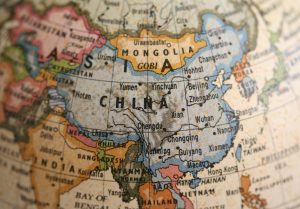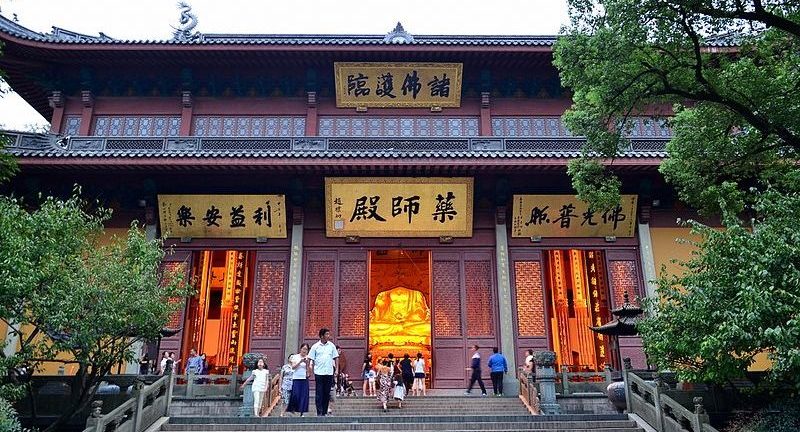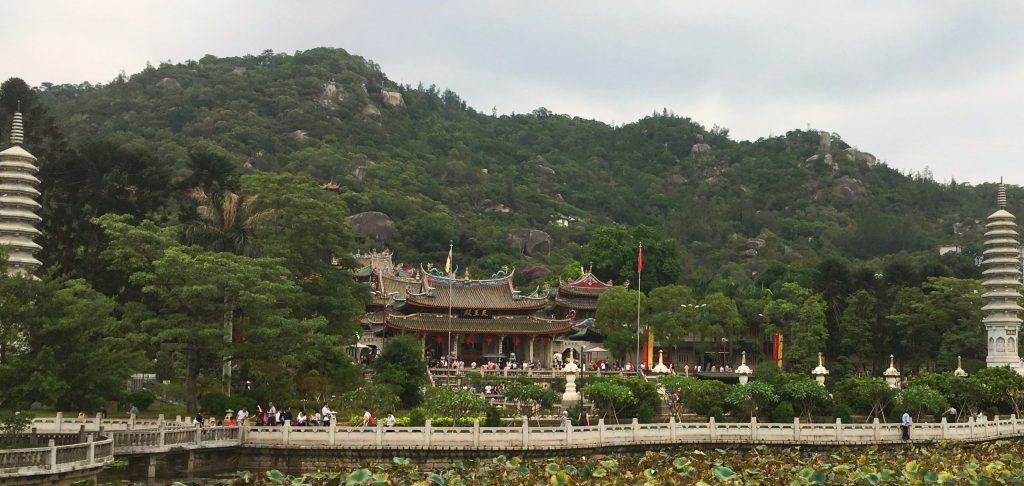This essay examines the responses of Han Buddhism to Covid-19 in the People’s Republic of China (PRC). From late January 2020, following the announcement of the coronavirus disease in the central Chinese city of Wuhan, temples have been closed to the public as part of the society-wide lockdown. Nevertheless, Buddhists have found ways to be active in offering prayers and material support for those suffering from the coronavirus pandemic. Their activities follow state administrative institutions for guidance, in other words, control of religion. To understand Buddhist responses to the coronavirus pandemic, it is helpful to start by considering the position of sickness in Buddhism, and the state control of religion in the PRC.
First, in Buddhism, sickness is considered as one of the four fundamental sufferings of sentient existence, along with living, aging, and death. In China, there is the traditional and widespread traditional belief that Buddhist teachings and practices can heal sickness and prevent disasters. Additionally, for the past decade, the Buddhist establishment in the PRC has promoted meditation for mental and physical wellbeing. Hundreds of millions of people perform Buddhist rituals and practice its teachings, to varying degrees, at home and in temples, although only a fraction has taken the precepts to be Buddhist devotees. In general, people practice Buddhism by such activities as chanting sutras, eating vegetarian food, sending merit to ancestors, and worshipping for health, release from sufferings, and prosperity for themselves and their families.
 Secondly, in the PRC, state control of religion significantly affects the activities and teachings of Buddhism. All Buddhist temples are managed by the state-approved Buddhist Association of China (BAC), that has offices at the national, provincial and local levels. Its members are mostly prominent clerics, including abbots of major temples. The BAC, under the supervision of the State Administration of Religious Affairs (SARA), ensures that temples and clerics meet three critical expectations of the Communist Party of China (CPC) for religions, especially Buddhism.[1]
Secondly, in the PRC, state control of religion significantly affects the activities and teachings of Buddhism. All Buddhist temples are managed by the state-approved Buddhist Association of China (BAC), that has offices at the national, provincial and local levels. Its members are mostly prominent clerics, including abbots of major temples. The BAC, under the supervision of the State Administration of Religious Affairs (SARA), ensures that temples and clerics meet three critical expectations of the Communist Party of China (CPC) for religions, especially Buddhism.[1]
The first is for religious groups to be patriotic. This is expressed in the slogan “love country, love religion,” which places loyalty to the country and CPC before religion. The second expectation is for religions to “adapt to socialist society,” which means developing doctrines and practices of religion that serve the needs of society as defined by the CPC. The third, emphasized by Xi Jinping since becoming China’s leader in 2013, is to stress on aspects of “Buddhism as culture” that the CPC now considers as a core of Chinese civilization. The BAC encourages Buddhist clerics to create ethics, morals, and lifestyles related to Buddhism for the people, and to cooperate with state promotion of Buddhism as soft power along the Belt and Road Initiative (BRI) in Asia, and in Europe and North America.
State Directives to Buddhists to Mobilize Against COVID-19
Since late January, SARA and the BAC have issued directives to Buddhist clerics and devotees on how to respond to the spread of coronavirus disease. Directives include “strengthening the propaganda and guidance of religious believers” to prevent them from falling for “superstition,” encouraging voluntary donations, and praying for the health and safety of the nation. These are standard state concerns for religions in the PRC since their recovery after the Cultural Revolution (1966-1976) and have been issued by all religious associations to their communities of followers.
On January 29, 2020, the local BAC office in Wuhan City, the epicenter of the pandemic, issued a statement expressing the firm determination of Buddhists to fight Covid -19.
“Great mercy is the happiness of all sentient beings; great compassion will extricate all sentient beings from suffering” [Treatise on the Great Perfection of Wisdom]. In the great struggle against the new coronavirus, the Wuhan Buddhist Association urges Buddhists throughout the city to show tolerance, understanding, and kindness, along with the courage, wisdom, and strength to win this smokeless war. We must have the heart of selfless dedication and perseverance without fearing what lies ahead. When ten thousand sentient beings are of one heart, no mountain cannot be surmounted; when their wills are united, no hardships cannot be overcome.[2]
Even though Buddhist temples are closed to the public, their clerics have been actively organizing many Buddhist religious rituals and “Buddhism as culture” activities online.
Buddhist Religious Rituals: Praying for the Dead and the Living
Clerics are performing rituals to pray for those who died and those living in the time of the coronavirus pandemic. One of the most elaborate is the plenary mass (shuilüfahui), to pray for all dead souls, including those who died in unnatural circumstances, such as an epidemic or war, as well for improving the situation of living people. Throughout history, this ritual has been commissioned by emperors and high-ranking persons during difficult times to console people in the nation. Another ritual performed in temples is the Medicine Buddha prayer service (yaoshi fahui) that has long been popular among Han Chinese for healing and longevity.
In the current situation, people cannot visit temples to participate in these rituals, so their performance is being communicated online. An example is a dharma talk by Ven. Guoguang, BAC vice-secretary and abbot of the famous Lingyin Temple, in Hangzhou City, that is posted on the temple website. In the talk, titled “How to Sustain Your Body and Mind in the Face of an Epidemic,” he remarks that Lingyin clerics are holding worship rituals to “protect the country from disasters, and a Medicine Buddha prayer service to console the souls of all sentient beings and maintain the stability and unity of the country and society.”[3]

The Medicine Buddha Pavilion at Lingyin Temple. photo credit: Wikipedia
Buddhists are using online worship infrastructure to pray for those suffering from the coronavirus pandemic. Temples are reaching out to people through online services on their websites, established over a decade ago to attract the younger generation. Now, those sheltering at home can visit the websites to select the sutras they wish to hear and to donate alms.
Much online worship is organized by Buddhist devotees and believers independently of the temples. One of the most popular is a global prayer service under the banner “one mind action to dispel the plague” that is held twenty-four times a day at 13:30 in every time zone around the world.[4] It is run by the Buddhist Compassion Relief Tzu Chi Foundation, the global Buddhist philanthropic society based in Taiwan, and the only foreign religious organization permitted to operate nationally in China. Another independent form of online worship is among young people who are increasingly turning to Buddhism in this difficult time. They are using existing Buddhist networks on WeChat and other social media platforms for the fellowship of synchronous worship and concentration of spiritual energy. These social media networks operate without state approval and oversight, and so are not encouraged by SARA and the BAC.
Online rituals that enable social distancing to slow the spread of coronavirus disease may also be muting possible criticisms of the state for mishandling its outbreak. This can be seen in the sensitive matter of funeral rites for the dead. Temple are enabling bereaved families to commission an online synchronous ceremony. At the appointed time, family members worship from home while as clerics chant at a temple. These online death rituals preclude physical gatherings of bereaved family members whose strong emotions could turn into a critical feeling towards the state.
Other possible political implications for mourning those who died by Covid-19 are apparent in the Tomb Sweeping Festival (Qingming jie). This is a traditional custom of ancestor worship in China in early April when families visit cemeteries and halls housing the ashes of their deceased kin in Buddhist temples. This year, even as the national lockdown eased, the state has restricted access to sites, and the number of visitors has reportedly fallen sharply as compared to previous years.[5] While the state justifies the restriction by the need to maintain social distancing, it does avert large gatherings of people who may blame the state for the loss of their loved ones. At the same time, on April 4, the day of the Tomb Sweeping Festival, the state declared a nation-wide silence for three minutes to mourn the dead. This is a moment of the state taking the role of popular custom and belief in grieving and remembering those who died in a national public health crises.
In other countries, the BAC and Chinese authorities are working with the Buddhist communities there to hold joint rituals that mix spiritual and soft power. In Sri Lanka, on February 15 2020, a ceremony to send blessings to the coronavirus-affected people in China took place. Sri Lanka is a Theravada Buddhist country and a very significant site on the BRI. The ceremony was organized by the Sri Lanka-China Buddhist Friendship Association, founded in 2015 in Sri Lanka and it cooperates with the Chinese embassy. The ceremony occurred at the ancient Raja Maha Temple in Anuradhapura City, where the Chinese monk Faxian resided for a time after coming to Sri Lanka in the fifth century CE. The ceremony underscored the historical ties between the two countries and was broadcast over the Internet by the Chinese and Sri Lankan media as a symbol of friendship.
“Buddhism as Culture” Activities: Art, Etiquette, Charity
Prominent clerics, using forms of “Buddhism as culture,” are showing people appropriate ways to combine belief in Buddhism with loyalty to the CPC as they face this difficult time.[6] An example is a poetry and calligraphy exhibition organized by the BAC, titled “Great Compassion to Fight Against the Epidemic.”[7] Some poems express Buddhist teachings, such as a blessing for health and wellbeing by Ven. Xincheng, the BAC vice-president. Others contain political discourse, as seen in a rhyming couplet by Ven. Weihang, the prior of Baotuojiang Temple at Mount Putuo, the reputed home of Guanyin (Avalokitesvara), the bodhisattva of compassion, to whom people pray for protection from suffering. “Obeying the Party’s command, together the epidemic we fight. Praying to the power of Guanyin, will eliminate it through her might.”[8] The exhibition was conveyed to the people through online Buddhist media.
Buddhist media is also broadcasting Buddhist etiquette for social distancing. This is seen in an article titled “The Epidemic Requires the ‘Aligned Ten Fingers Ritual’: It is Time for a Wave of Buddhist Etiquette to become Popular.”[9] The “ten fingers ritual” refers to the Buddhist and Hindu manner of greeting people and praying to supernatural powers, such as deities and Buddha, while pressing their palms together with the fingers aligned. The article explains that President Trump of the United States and Prince Charles of Great Britain have adopted this practice, while Prime Minister Modi of India has called for it to replace the handshake. The connotation is that an Asian greeting is more sanitary, and therefore more civilized, than Western handshakes, kisses, and hugs that involve bodily contact. This implication is in tune with the Chinese state’s promotion of “Buddhism as culture” to express the superiority of Chinese civilization and its suitability to be a global culture.
Charity is another form of Buddhist activity that the state encourages. Provincial and local offices of the BAC, temple-based charities, the Buddhist Compassion Relief Tzu Chi Foundation, and temples have donated masks, protective suits, goggles, and money to the Red Cross Society of China. Other donations are made directly to those in need. Buddhist medical clinics in temple charities have distributed free masks to people. Youthful Buddhist believers are mobilizing social media networks to donate to hospitals in hotspots of coronavirus sickness. Donations include vegetarian food and green tea for Buddhists in hard-hit areas.

Nanputuo Temple. photo credit: David L. Wank.
Charity activities are deepening transnational links between Buddhists in China and abroad. This can be seen in Nanputuo Temple in Xiamen City, on China’s southeast coast, which has a network of 70,000 people, many of them overseas Chinese in Southeast Asia. These people belong to the temple’s charity foundation, founded in 1994, the first religious charity in China, or are alumni of its Buddhist college, founded in 1925. The temple’s appeal through the network for materials to battle coronavirus in China strengthens ties between Buddhists in China and Asian countries along the BRI. In addition, Buddhists in other countries, such as Korea and overseas Chinese communities in the United States, have sent material supplies. Since March, transnational flows have reversed as coronavirus infections have declined in China while increasing abroad. Buddhists in China are now sending medical assistance to Japan, the United States, Italy, the Philippines, and other countries.
Conclusion
The Buddhist response to Covid-19 shows how many people in China, when facing sudden disease and large numbers of deaths, find solace in Buddhist teachings, philosophy, and practices, such as the powerful chanting of the Medicine Sutra, to relieve their anxieties, and gain merit and security. At the same time, as the Buddhist establishment reaches out to people through Buddhist religious rituals and “Buddhism as culture,” it is cooperating with the state in channeling and controlling people’s emotions, and in using Buddhism as soft power globally.
Yoshiko Ashiwa is Professor of Anthropology and Global Issues at Hitotsubashi University in Tokyo, Japan. David L. Wank is Professor of Sociology and Global Studies at Sophia University in Tokyo, Japan. They have co-authored The Space of Religion: Temple, State, and Communities of Buddhism in Modern China (forthcoming, Columbia University Press).
[1]The state recognizes five religions: Buddhism, Catholicism, Daoism, Islam, and Protestantism. They each have a religious association that guides registered sites, such as temples, churches, and mosques (and their charities and seminaries) to accord with the state religious policy.
[2]Wuhan Buddhist Association; Zhi sizhong dizede gongkaiyan, February 29, 2020. https://mp.weixin.qq.com/s/_UXtMXufAwhdJv6gN6NFAQ)
[3]Lingyin Temple website. https://www.lingyinsi.org/detail_1073_13751.html
[4]Fenghuang Buddhist Channel, February 3, 2020. “Ciji jinjinhui faqi quanqiu qidao huodong: gongtong xingdong xiao mi zaihuo.” https://fo.ifeng.com/c/7tl6U4krkqJ
[5]According to one report, visits in a district in Beijing were down ninety-three percent as compared to last year.South China Morning Post. March 29, 2020. “Coronavirus: China limits access to cemeteries for Ching Ming tomb-sweeping festival.” https://www.scmp.com/news/china/society/article/3077439/coronavirus-china-limits-access-cemeteries-ching-ming-tomb
[6]These networks started up around 2000. Synchronizing with the state, they have shifted from broadcasting Buddhism as “religion” (i.e., dharma talks, chanting) to “Buddhism as culture.” The largest is the Buddhist channel of Fenghuangwang, a private media company. The channel features global coverage of Chinese Buddhist temples and events, articles on “Buddhism as culture” (i.e., architecture, music, tea ceremony), and has made clerics into Buddhist media stars.
[7]BAC, February 6, 2020, “‘Dabei xin qi kang yiqing’ zhuti fojiao shuhua shige zuopin xuankan. https://mp.weixin.qq.com/s/sonkyfKtYIREbF7g97Q1_g
[8]Pusa zaixian, February 7, 2020. https://www.pusa123.com/pusa/news/fo/125457.shtml
[9]Fenghuangwang . March 16, 2020. “Yiqing cuire ‘heshili’! shi shihou lai yi bo fomen liyi da puji le.” https://fo.ifeng.com/c/7usiTlCFSKG